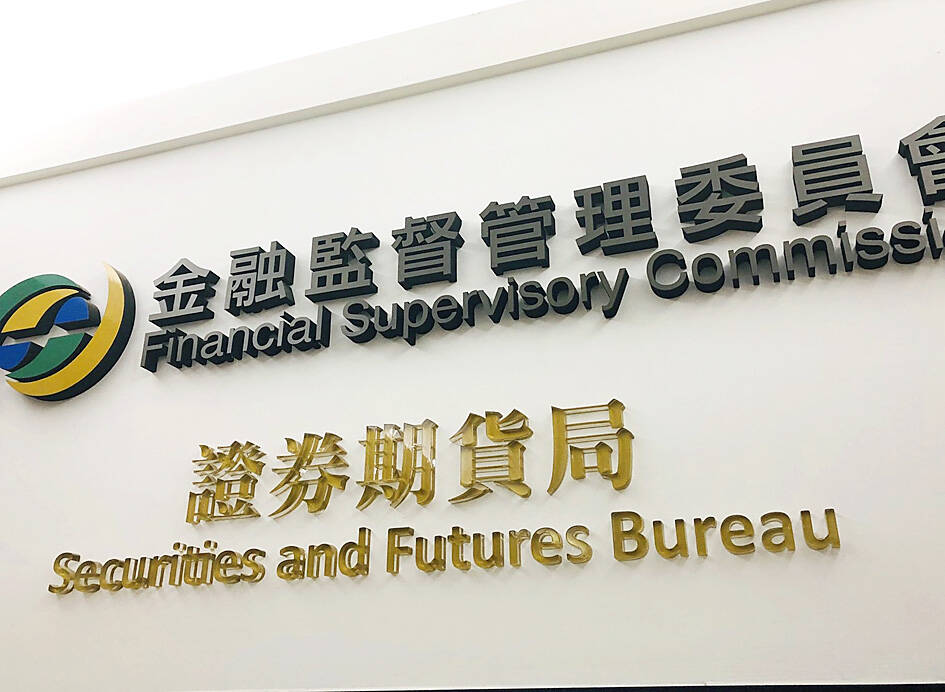The Financial Supervisory Commission (FSC) yesterday said it would monitor how Taisun Enterprise Co’s (泰山企業) purchase of a 40.4 percent stake in Jko Fintech Co (街口金融科技) would affect the latter’s electronic payment business and its users.
As the food and beverage maker did not invest in Jkopay Co (街口電子支付) directly, the share purchase is not subject to the FSC’s approval, but Taisun must soon submit a report to the Taiwan Stock Exchange (TWSE) regarding its board’s decisionmaking process, the commission said.
Taisun could face a fine of up to NT$4.8 million (US$156,342) if it fails to submit a report to the exchange, Securities and Futures Bureau Deputy Director Kao Ching-ping (高晶萍) told a news conference.

Photo: Kelson Wang, Taipei Times
Taisun on Saturday offered to acquire 146 million shares of Jko Fintech for NT$3.6 billion, a move opposed by its majority shareholder Long Bon International Co (龍邦).
The exchange has questioned the deal, which some said did not go through Taisun’s audit committee and lacked transparency.
Publicly listed firms have an obligation to clarify investors’ concerns about the potential financial impacts of major investments, the exchange said.
Taisun failed to take Jko Fintech’s book value into account and did not consider its scale of operations, growth potential and future cash flow, given that Jkopay has the biggest market share in Taiwan, the exchange said.

Taiwan Semiconductor Manufacturing Co (TSMC, 台積電) would not produce its most advanced technologies in the US next year, Minister of Economic Affairs J.W. Kuo (郭智輝) said yesterday. Kuo made the comment during an appearance at the legislature, hours after the chipmaker announced that it would invest an additional US$100 billion to expand its manufacturing operations in the US. Asked by Taiwan People’s Party Legislator-at-large Chang Chi-kai (張啟楷) if TSMC would allow its most advanced technologies, the yet-to-be-released 2-nanometer and 1.6-nanometer processes, to go to the US in the near term, Kuo denied it. TSMC recently opened its first US factory, which produces 4-nanometer

GREAT SUCCESS: Republican Senator Todd Young expressed surprise at Trump’s comments and said he expects the administration to keep the program running US lawmakers who helped secure billions of dollars in subsidies for domestic semiconductor manufacturing rejected US President Donald Trump’s call to revoke the 2022 CHIPS and Science Act, signaling that any repeal effort in the US Congress would fall short. US Senate Minority Leader Chuck Schumer, who negotiated the law, on Wednesday said that Trump’s demand would fail, while a top Republican proponent, US Senator Todd Young, expressed surprise at the president’s comments and said he expects the administration to keep the program running. The CHIPS Act is “essential for America leading the world in tech, leading the world in AI [artificial

REACTIONS: While most analysts were positive about TSMC’s investment, one said the US expansion could disrupt the company’s supply-demand balance Taiwan Semiconductor Manufacturing Co’s (TSMC, 台積電) new US$100 billion investment in the US would exert a positive effect on the chipmaker’s revenue in the medium term on the back of booming artificial intelligence (AI) chip demand from US chip designers, an International Data Corp (IDC) analyst said yesterday. “This is good for TSMC in terms of business expansion, as its major clients for advanced chips are US chip designers,” IDC senior semiconductor research manager Galen Zeng (曾冠瑋) said by telephone yesterday. “Besides, those US companies all consider supply chain resilience a business imperative,” Zeng said. That meant local supply would

BIG INVESTMENT: Hon Hai is building the world’s largest assembly plant for servers based on Nvidia Corp’s state-of-the-art AI chips, Jalisco Governor Pablo Lemus said The construction of Hon Hai Precision Industry Co’s (鴻海精密) massive artificial intelligence (AI) server plant near Guadalajara, Mexico, would be completed in a year despite the threat of new tariffs from US President Donald Trump, Jalisco Governor Pablo Lemus said. Hon Hai, also known as Foxconn Technology Group (富士康科技集團), is investing about US$900 million in what would become the world’s largest assembly plant for servers based on Nvidia Corp’s state-of-the-art GB200 AI chips, Lemus said. The project consists of two phases: the expansion of an existing Hon Hai facility in the municipality of El Salto, and the construction of a